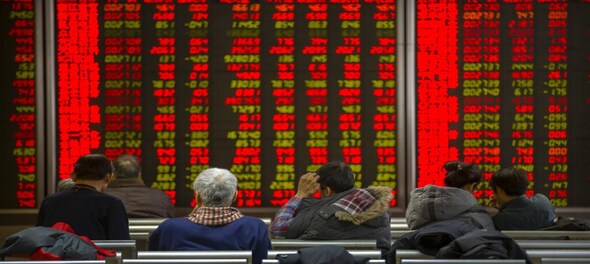
China’s Premier Li Qiang asked authorities to take more “forceful” measures to stabilize his country’s slumping stock market and investor confidence, after the mainland’s benchmark CSI 300 Index hit a five-year low on Monday.
Chinese equities have sold off for most of the past year, hurt by factors ranging from a protracted crisis in the housing market to persistent deflationary pressures in the wider economy. Beijing’s policy response so far has failed to buttress sentiment among investors hoping for even easier monetary conditions or a big lift in fiscal stimulus.
At a meeting on Monday chaired by Li, the State Council, China’s cabinet, received a briefing on the operations of the capital markets as well as considerations for related work, according to an official statement, which didn’t provide more details on what Beijing is mulling.
A rally in late 2022 sparked by China’s lifting of draconian Covid-19 restrictions proved short-lived, with concerns about poor consumer confidence among the factors weighing on equities. The CSI 300 has slumped some 20% over the past nine months.
China has in the past sometimes deployed state assets to intervene in the markets. The country’s sovereign wealth fund made such a move in October.
“It sounds like something had been readied in response to the recent equity rout,” said Neo Wang, managing director for China research at Evercore ISI in New York. “The market was poor enough to warrant such elevated attention — China cannot afford to see A-shares sinking toward the Lunar New Year holidays,” he said, referring to domestically listed Chinese stocks and the upcoming mid-February break.
The State Council emphasized the need to enhance the quality and investment value of listed companies, increase flows of medium- and long-term funds into the market, and strengthen the market’s inherent stability.
Other measures included strengthening the regulations that govern capital markets. China also needs to improve the consistency of its macro policies in order to consolidate the nation’s economic recovery, the State Council said after the meeting.
While incremental measures may be pending, nothing indicates “anything extraordinary that would fundamentally reshape market expectations,” said Gabriel Wildau, managing director at advisory firm Teneo Holdings LLC in New York. More broadly, “it’s clear at this point that President Xi Jinping doesn’t view major stock indexes as an important gauge of the success or failure of his economic strategy,” he said.
Still, the tumble in Chinese equities threatens to undermine international confidence in the country’s financial system just as Xi pushes to make the nation a world “financial power.” Overseas investors have already been skittish over the Communist Party’s increasing influence in the economy.
“We pulled our clients out of China,” Alicia Levine, BNY Mellon Wealth Management’s head of investment strategy, said on Bloomberg Television Monday. “The political party is sitting at the top of the corporate structure of every large company and small company in China — very hard to invest that way.”
Check out our in-depth Market Coverage, Business News & get real-time Stock Market Updates on CNBC-TV18. Also, Watch our channels CNBC-TV18, CNBC Awaaz and CNBC Bajar Live on-the-go!


Prajwal Revanna Sexual Assault Case: Activist raises concerns over political interference, delayed investigation in the matter
Apr 30, 2024 10:17 PM
Lok Sabha Election 2024: Baramati election outcome will decide the future of Pawar dynasty, says expert
Apr 30, 2024 10:08 PM
Lok Sabha elections 2024: Baramati to Mainpuri, key battles in phase 3
Apr 30, 2024 7:01 PM

